By a Practitioner of the Old Ways
As someone deeply rooted in Wiccan and Pagan traditions, I’ve come to see spiritual rituals not just as something we do, but as something we live. Over time, I’ve been asked many questions by those new to the path or simply curious. So today, I’d like to share what I’ve learned and personally believe about the essence of spiritual rituals.
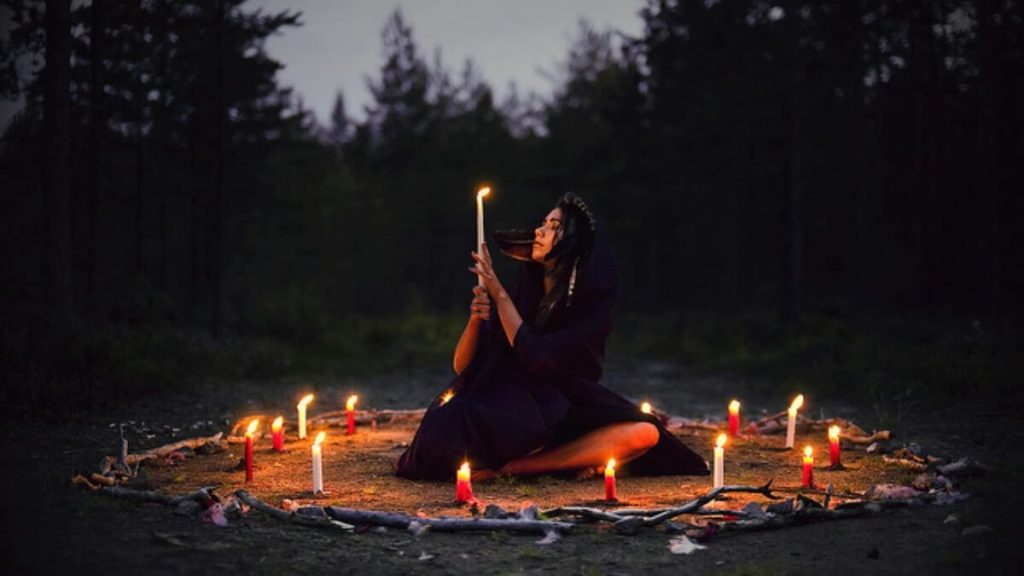
Spiritual rituals beckon with mystery and purpose. They are practices—daily or ceremonial—that tie us to something greater, be it nature, community, or the divine. In simple terms, “spiritual rituals are practices or ceremonies that hold significant meaning” within a belief system. By consciously lighting a candle, saying a prayer, or pausing to breathe, we turn ordinary acts into sacred acts that embody our values (gratitude, courage, love). Throughout history, these intentional acts have given structure and wonder to human life, from ancient temple offerings to modern moments of mindfulness. The sections below explore what spiritual rituals mean, their types and examples, and how beginners can create simple rituals of their own.
Spiritual Rituals Meaning
A spiritual ritual is, at its core, a set of structured actions performed with intention. It might look formal (a priest chanting in a temple) or simple (you lighting a candle at home), but in each case the actions carry symbolic significance. The purpose of a ritual is to foster connection—with a god, an ancestor, the Earth, or our own deeper self. In practice, rituals help us ground a meaningful moment. As one guide notes, these ceremonies “aim to foster a connection with the divine or the spiritual self,” often using symbols, prayers, or songs. Psychology research even finds that rituals can support emotional healing: participating in ritual “helps people process emotions, reducing anxiety” during life’s challenges. In other words, a ritual is a way of giving purpose to what we do, transforming routine into sacred presence.
What is the essence of spirituality?
To me, the essence of spirituality is about connection—connection to the Earth, the Divine, and to our inner truth. It’s not about dogma or fixed beliefs, but about experiencing life with awareness and reverence. When I step outside and feel the wind brush against my face, or when I sit in stillness under the moonlight, I remember that I am part of something vast and sacred. That, to me, is the heart of spirituality.
What are spiritual rituals?
Spiritual rituals are sacred acts we perform to align with this deeper connection. In Wiccan and Pagan practice, these rituals can range from celebrating the Sabbats (like Samhain or Beltane), to drawing down the Moon, to everyday rites such as lighting a candle for protection or blessing a meal. I often say that rituals are the language our spirit uses to speak with the universe. They create space for magic, intention, and transformation.
What is the meaning of spiritual essence?
When we talk about “spiritual essence”, I think of it as the core energy or truth within something. It’s the soul of a ritual, the power behind the words and actions. The spiritual essence is what gives a ritual its depth and authenticity. It’s not about how elaborate a ritual is—it’s about how true it feels to your heart and spirit.
What is the main purpose of a ritual?
The main purpose of a ritual, in my experience, is to focus intention and connect with energies greater than ourselves. Rituals help us mark transitions, manifest change, offer gratitude, seek guidance, or simply honor the cycles of life and nature. When I perform a ritual, I’m not just going through motions—I’m creating a bridge between the physical and spiritual realms.
What are the four essential elements of ritual?
Every ritual I create or participate in usually includes these four essential elements:
- Intention – Why are you doing this ritual? What do you hope to shift, heal, or create?
- Sacred Space – Whether it’s a cast circle or a quiet corner of your home, creating a dedicated space helps separate the sacred from the mundane.
- Energy – This includes the raising, directing, and grounding of energy through movement, chant, visualization, or tools like crystals or wands.
- Connection – With the Divine, the elements, ancestors, or your higher self. This is the heart of any spiritual work.
These elements ensure that the ritual is not just symbolic, but alive with meaning and energy.
What is the power of rituals?
I truly believe that rituals have power—deep, transformative power. They help us move through grief, celebrate joy, find clarity, and claim our spiritual path. The power of rituals lies in their ability to bring the unseen into form. They remind us that we are not powerless, that we are co-creators of our lives and experiences.
In a world that often feels chaotic, rituals offer grounding and purpose. They give us rhythm, meaning, and a
Types of spiritual rituals
Spiritual rituals come in many forms. For example:
- Prayer & Meditation: Private or communal conversations with the divine, or quiet reflection, are perhaps the most universal rituals. Whether you pray on your knees or sit in silent meditation, you are performing a ritual of connection.
- Offerings & Ceremonial Acts: Giving gifts (candles, flowers, food, incense) or performing dances and chants are classic ritual behaviors. Lighting a candle for a loved one or joining in a devotional song are rituals of honor.
- Life-cycle Ceremonies: Birthdays, weddings, funerals, and other rites of passage inherently carry ritual meaning. These communal ceremonies (from baptisms to funerals) mark transitions in life and give them spiritual context. Seasonal festivals (solstices, harvest celebrations) are also major ritual events in many cultures.
- Everyday Mindful Rituals: Even routine habits can be turned into spiritual rituals. As Calm.com explains, “rituals are habits elevated by intention and mindfulness”. A morning cup of tea, slow breathing, or a night-time gratitude routine becomes a daily ritual when done consciously.
Each of these types shares one element: intention. It’s the heart we put into the action that transforms it.
Ancient spiritual rituals
Spiritual rituals are as old as humanity. Throughout history, people have used ritual to honor the mysteries of life. In many ancient traditions, fire was a sacred element: participants offered herbs or grains to a holy flame because fire was “believed to carry messages to the divine and cleanse the spirit”. Similarly, labyrinths and mandalas have been used across the ages as meditative tools.
A stylized labyrinth reminds us of the spiritual path. Creating or walking a labyrinth has been a ritual way to focus the mind – one author notes that even “folding an origami crane” or walking a simple maze is counted among sacred arts. In Egypt, the pharaoh’s Opening of the Mouth ritual aimed to awaken the soul for the afterlife. In Tibet, monks create intricate sand mandalas as prayers for world peace. Native American peoples held smoke ceremonies with sacred pipe or sage to pray for healing and harmony. Whether through ancient temple rites or tribal fire circles, these time-honored rituals connect us to our ancestors and the natural cycles that have always shaped human life.
Rituals to do by yourself
Many powerful rituals can be performed alone, in the quiet of your home or in nature. Simple rituals for personal practice include: sitting quietly for meditation or prayer in the morning, creating a small altar of meaningful objects, or lighting a candle with a clear intention. Journaling can be a ritual: for instance, writing three things you’re grateful for each night has been suggested as a practice to shift your mindset toward positivity. You might also turn mundane tasks into rituals—one author even notes that “cooking meals becomes more meaningful when you think about the nourishment it provides”. The difference is mindfulness: slow down, breathe, and focus on why you’re doing each act. Calm.com reminds us that any routine can become a soul-nourishing ritual when done with care. For example, add a moment of reflection before drinking your morning coffee, or play soft music while stretching as a form of moving meditation. By choosing activities that resonate with you (herbal tea blessing, moon-lit walk, prayer before sleep), you create solo rituals that feed your spirit. Over time these self-guided rituals become comforting anchors in daily life.

Spiritual rituals book
If you want guidance, many authors have compiled ritual practices:
- The Rituals: Simple Practices to Cultivate Well-Being… (MacNeil, Blacker & Gardiner, 2019) – A beautifully illustrated collection of 40+ ceremonies from around the world. It includes step-by-step guides to practices like a candlelight renewal ritual or a tea ceremony for gratitude.
- The Power of Ritual: Turning Everyday Activities into Soulful Practices (Casper ter Kuile, 2020) – Explores how ordinary habits (yoga, walking, journaling) can be deepened into meaningful rituals Ter Kuile shows that even buying groceries or doing laundry can be transformed into an act of intention and reflection.
- Sacred Rituals: Connecting with Spirit Through Labyrinths, Sand Paintings, and Other Practices (London & Recio, 2004) – Presents 14 spiritual traditions with hands-on rituals (labyrinth walks, Tibetan sand painting, Japanese tea ceremony). The authors explain how “even the simplest of acts, such as folding an origami crane, can help us become fully present in each moment”.
- Cosmic Self-Care: Spiritual Rituals for Modern Mystics (Katie Huang, 2024) – Ties rituals to the seasons and zodiac. This new guide uses astrology, moon cycles, and nature’s rhythms to help you build daily rituals. A review notes it offers “beautiful explorations of how and why readers will benefit from this alignment,” making it a gentle introduction to using celestial cycles in personal practice.
These books provide inspiration and instructions, but remember: a ritual need not be complicated to be meaningful.
Spiritual rituals for success
Many people use rituals to set intentions for success and abundance. These are not just “magic tricks,” but ways to focus your mind on your goals. A popular technique is a candle manifestation ritual: write down a clear goal on paper, then light a candle as you visualize that goal coming true. For example, one guide instructs: “Start the ritual by writing down on paper what it is that you wish to manifest. Then light your chosen candle… stare at the flame and visualize your specific manifestation coming to fruition”. Candle magic in this context “blazes through any blocks or limitations” and helps you mentally embody success. Other success rituals include writing positive affirmations (in present tense) in a special journal, using crystals (like citrine for abundance), or even keeping a simple altar for guidance (as one business coach suggests). A mundane example: before an important interview, you might practice a short prayer or visualization routine. The idea is to treat your aspirations as sacred – to bridge your spiritual focus with practical action. Over time, such rituals can boost your confidence and keep your intentions clear.
Daily spiritual rituals
Integrating rituals into your daily routine can quietly transform your life. Even brief, consistent practices can “boost your sense of wellbeing and mindfulness”. Science has shown that regular rituals reduce stress and anxiety, so think of them as small acts of self-care. For instance, starting each day with a 5–10 minute meditation can “set a calm, positive tone for the day ahead”. Many people keep a gratitude journal by their bed and write three good things each night. A midday ritual could be a short walk outdoors to reset your mind. Or create an evening ritual: turn off screens an hour before bed, light a scented candle, and spend a few moments reflecting. These daily rituals – whether prayer, breathwork, or simply pausing with intention – act like anchors. Each repetition makes mindfulness a habit. Soon your morning cup of tea, your jog, or your nightly candle becomes a doorway to presence.
Perform rituals meaning
To perform a ritual simply means to do it with awareness. It’s the act of carrying out those structured, meaningful steps. A grief counselor explains that ritual is “a set of structured actions … often formal … with symbolic, cultural, religious, or personal significance”. When you perform a ritual, you are engaging those actions purposefully rather than mindlessly. In doing so, each gesture (lighting, speaking, offering) becomes a deliberate expression of your intention. For example, pouring water into a glass while praying or tying a ribbon during a ceremony – these acts become charged with meaning. Studies suggest that performing rituals (even very simple ones) helps us cope with change: they create a sense of order and can “help people process emotions, reducing anxiety, and promoting healing”. In short, performing a ritual is about bringing consciousness into action. It turns a moment into a ceremony and helps you bridge your inner beliefs with the outer world.
Spiritual rituals examples
- Lighting a Candle or Incense: Many traditions (from churches to temples) begin prayers by lighting a flame or incense as a sign of honor and focus.
- Morning Meditation or Prayer: Sitting quietly for a few minutes at dawn – with prayer, mantra, or breath awareness – sets a sacred tone for your day.
- Ritual Baths: A cleansing bath with salt, herbs or oils (as in many cultures) can be a nightly ritual to release the day’s stress and purify the spirit.
- Moon Ceremonies: Using full or new moons as cues (e.g. releasing what no longer serves you under a full moon) is a modern ritual rooted in ancient practices.
- Walking a Labyrinth: (or drawing one) to meditate. As one spiritual guide notes, walking a created maze or making a mandala is a way “to become fully present” and connect with the sacred.
- Smudging/Pipe Ceremony: Burning sage or tobacco and fanning the smoke over yourself or your space is an Indigenous practice for purification and prayer. You can adapt it at home to refresh the air and mind.
- Gratitude Journaling/Affirmations: Writing positive intentions or thank-you notes to the universe in a special notebook each day is a simple yet powerful ritual to align your thoughts.
- Breath or Movement Rituals: Repeating a short prayer quietly in rhythm with your breath, or doing a gentle sun salutation (yoga) each morning with a blessing, are ways to unite body and spirit.
Each of these examples can spark your own ideas. The form doesn’t matter as much as the feeling: the goal is to slow down and infuse your actions with purpose.
As you explore these ideas, start small. Pick one simple ritual to try – perhaps lighting a candle in the evening or setting an intention each morning. Notice how it feels to pause and focus. Over time, these practices can weave a sense of sacredness into everyday life. By integrating rituals into your routine, you create intentional pauses where you connect with your deepest values. May these rituals bring you balance, clarity, and inspiration on your spiritual journey.
In a fast-paced world filled with distractions, spiritual rituals offer moments of solace and connection. These sacred practices have been woven into the fabric of humanity for centuries, serving as a means to deepen our connection with the divine, honor our inner selves, and find a sense of balance and purpose. In this article, we will delve into the transformative power of spiritual rituals, (you can read about The Ritual Book)exploring their significance, benefits, and ways to incorporate them into our daily lives.
The Essence of Spiritual Rituals
At their core, spiritual rituals embody the essence of human yearning for meaning, connection, and transcendence. These rituals encompass a spectrum of practices, from the personal to the communal, and are woven into the fabric of human experience across cultures, religions, and belief systems. The essence of spiritual rituals can be explored through several key aspects:
Symbolism and Sacred Actions: Spiritual rituals often involve symbolic actions that carry deep significance. These actions might include lighting candles, making offerings, reciting prayers or mantras, wearing specific attire, or engaging in specific movements. The symbolism imbued in these actions allows participants to bridge the gap between the tangible and the metaphysical, creating a conduit through which they can communicate with the divine or access higher states of consciousness.
Connection with the Divine: Spiritual rituals provide a structured and intentional way to establish a connection with the divine, however, it might be understood within a particular belief system. Whether it’s the worship of deities, the alignment with cosmic forces, or the communion with ultimate reality, rituals offer a tangible means to engage in a dialogue with the transcendent.
Transcending Time and Space: When individuals engage in spiritual rituals, they step out of the constraints of ordinary time and space. The rituals often have historical roots, linking participants to generations past, and they project into the future, creating a sense of continuity and belonging that stretches across time. Moreover, rituals often transport participants beyond their immediate physical surroundings, allowing them to tap into a realm of spiritual significance.
Emotional and Energetic Resonance: Rituals have the power to evoke profound emotions and tap into deep energetic currents. The rhythmic chants, melodic hymns, or repetitive movements can induce altered states of consciousness, enabling participants to experience emotions ranging from awe and reverence to joy and tranquility. These emotional states become intertwined with the ritual experience, enriching its impact.
Conscious Intentionality: Central to many spiritual rituals is the notion of conscious intentionality. Participants engage in these practices with a deliberate mindset, focusing their thoughts, feelings, and energies toward a specific purpose. This heightened level of awareness helps individuals align themselves with their spiritual goals, whether it’s seeking guidance, healing, transformation, or a deeper understanding of existence.
Gateway to Mystery and Wisdom: Spiritual rituals often encompass elements of mystery and wisdom that go beyond the literal interpretation of the actions. These rituals are not just rote performances; they are vessels of hidden teachings, encapsulating profound insights about the nature of reality, human purpose, and the interconnectedness of all things. As participants engage with these rituals repeatedly, they uncover layers of meaning and wisdom that enrich their spiritual journey.
Universal and Personal: While spiritual rituals are often rooted in specific traditions, they also possess a universal dimension. The yearning for meaning and connection is inherent to the human experience, transcending cultural boundaries. As individuals engage in these practices, they find both a collective resonance with others who share their beliefs and a personal, intimate connection with their own spirituality.
In essence, spiritual rituals are multi-dimensional vehicles that enable individuals to transcend the limitations of the material world and touch the profound depths of their spiritual essence. They invite participants to journey beyond the mundane, to explore the mysteries of existence, and to discover the uncharted territories of the soul. In embracing these rituals, individuals engage with an ancient and timeless practice that continues to illuminate the path of human exploration and self-discovery.
What is the meaning of Spiritual Ritual?
In a world often defined by its material pursuits and fast-paced nature, individuals are increasingly seeking avenues to find deeper meaning, inner peace, and a sense of transcendence. Spiritual rituals stand as gateways to these transformative experiences, offering a profound connection to the self, the universe, and the divine. Let’s delve into how spiritual rituals facilitate the discovery of meaning and transcendence:
Sacred Pause and Reflection: In the midst of busy lives, spiritual rituals provide a space for a sacred pause. Through these rituals, individuals intentionally step away from the hustle and bustle of daily routines, allowing themselves to reflect, contemplate, and reconnect with their inner selves. This pause enables a shift in perspective, allowing one to ponder life’s deeper questions and seek clarity about their purpose.
Ritual as a Language of the Soul: The language of ritual often transcends words, allowing the soul to express itself through symbolic actions and gestures. These actions tap into a realm beyond the logical mind, resonating with emotions, intuitions, and the subconscious. As individuals engage in these actions, they experience a profound sense of resonance and alignment with their innermost desires and aspirations.
Unity of Mind, Body, and Spirit: Spiritual rituals foster a harmonious integration of mind, body, and spirit. Whether it’s through prayer, meditation, movement, or sound, rituals engage multiple facets of human experience. This alignment brings about a state of wholeness, where the individual feels centered and connected, transcending the boundaries of their physical form.
Anchoring to the Present Moment: One of the hallmarks of many spiritual rituals is their focus on the present moment. Whether it’s the repetition of a mantra, the rhythmic beat of a drum, or the observance of intricate details in a ritual, participants are drawn into a state of mindfulness. This anchoring to the present moment cultivates a deep sense of presence and awareness, which can lead to profound insights and moments of transcendence.
Experiencing the Sacred: Spiritual rituals often designate specific objects, places, or times as sacred. Through these designations, participants create a tangible connection to the divine or the transcendent. Engaging with these sacred elements allows individuals to transcend the ordinary and enter into a realm suffused with meaning, significance, and spiritual energy.
Connection with Ancestral Wisdom: Many spiritual rituals are steeped in tradition and carry the wisdom of generations past. By participating in these rituals, individuals forge a connection with their ancestors and the accumulated knowledge of their lineage. This link to ancestral wisdom adds depth and richness to the experience, contributing to a sense of continuity and purpose.
Transformation and Renewal: Spiritual rituals often mark moments of transformation and renewal. Whether it’s a baptism, a vision quest, or a meditation retreat, these rituals guide individuals through a process of shedding old layers and embracing new beginnings. This transformative aspect of rituals aligns with the human desire for growth, evolution, and self-discovery.
Beyond the Ego: Engaging in spiritual rituals encourages a shift away from the ego-driven concerns of everyday life. As participants immerse themselves in these practices, they move beyond the realm of personal desires and concerns, focusing instead on larger cosmic questions and universal truths. This shift can lead to a profound sense of interconnectedness and humility.
In a world that often emphasizes external achievements, spiritual rituals provide a sanctuary for individuals to explore the depths of their inner worlds and seek a connection with something greater than themselves. These rituals serve as potent reminders that there is more to life than meets the eye, inviting individuals to embark on a journey of self-discovery, purpose, and transcendence. Through these transformative experiences, individuals find solace, meaning, and a renewed sense of vitality in their spiritual journey.
What are the Types of Spiritual Rituals
Spiritual rituals come in a myriad of forms, each tailored to the specific beliefs, cultures, and traditions of different communities. These rituals serve as vehicles for individuals to connect with the divine, explore their inner selves, and seek transcendence as Money Rituals. Here are some types of spiritual rituals from various traditions:
- Prayer and Meditation: Found in nearly every spiritual tradition, prayer and meditation rituals involve contemplative practices aimed at connecting with the divine, seeking guidance, and fostering inner peace. These rituals often involve focusing the mind, directing intentions, and creating a space for communication with a higher power.
- Sacraments and Rites of Passage: Many religions have rituals that mark significant life transitions, such as baptisms, confirmations, weddings, and funerals. These rites of passage often involve symbolic actions that carry deep spiritual and cultural meanings, signifying an individual’s journey through different stages of life.
- Offering and Sacrifice: Rituals involving offerings and sacrifices are common in various cultures. Participants offer gifts, whether material or symbolic, to express devotion, seek blessings, or establish a connection with deities or spiritual forces. These rituals represent a form of reciprocity between humans and the divine.
- Communal Worship and Gathering: Communal rituals, such as congregational prayers, religious services, and spiritual gatherings, provide opportunities for believers to come together and collectively engage in acts of devotion, worship, and reflection. These rituals foster a sense of community and shared spirituality.
- Chanting and Singing: Chanting mantras, hymns, or sacred songs is a practice found in many traditions. These repetitive vocalizations have a meditative quality, helping participants enter altered states of consciousness and facilitating a deeper connection with the spiritual realm.
- Fasting and Purification: Fasting rituals involve abstaining from food or certain activities as a means of purification and spiritual discipline. By refraining from physical indulgences, individuals seek to cultivate mental clarity, spiritual insight, and a heightened sense of connection.
- Pilgrimage and Sacred Journeys: Pilgrimage rituals involve traveling to sacred sites or locations of spiritual significance. These journeys are often undertaken as acts of devotion, self-discovery, and seeking blessings from revered places or saints.
- Divination and Oracle Practices: Divination rituals aim to gain insight into the future or receive guidance from the spiritual realm. Techniques such as tarot readings, casting runes, or consulting oracles are used to interpret signs and witch symbols.
- Nature and Elemental Rituals: Some spiritual practices emphasize the connection between humans and the natural world. These rituals involve engaging with the elements—earth, air, fire, and water—to harness their energies, seek balance, and align with the cycles of nature.
- Mindful Rituals: Beyond religious contexts, mindful rituals such as tea ceremonies, labyrinth walking, or gratitude practices are used to cultivate presence, mindfulness, and a deeper connection with oneself and the present moment.
- Mystical and Esoteric Rituals: Certain spiritual traditions incorporate rituals designed to induce mystical experiences or altered states of consciousness. These rituals often involve secrecy, symbolism, and deep spiritual exploration.
These are just a few examples of the diverse array of spiritual rituals that exist across cultures and belief systems. Each ritual type serves a unique purpose, offering participants a way to tap into the transcendent, connect with their inner selves, and navigate the intricate tapestry of spirituality.
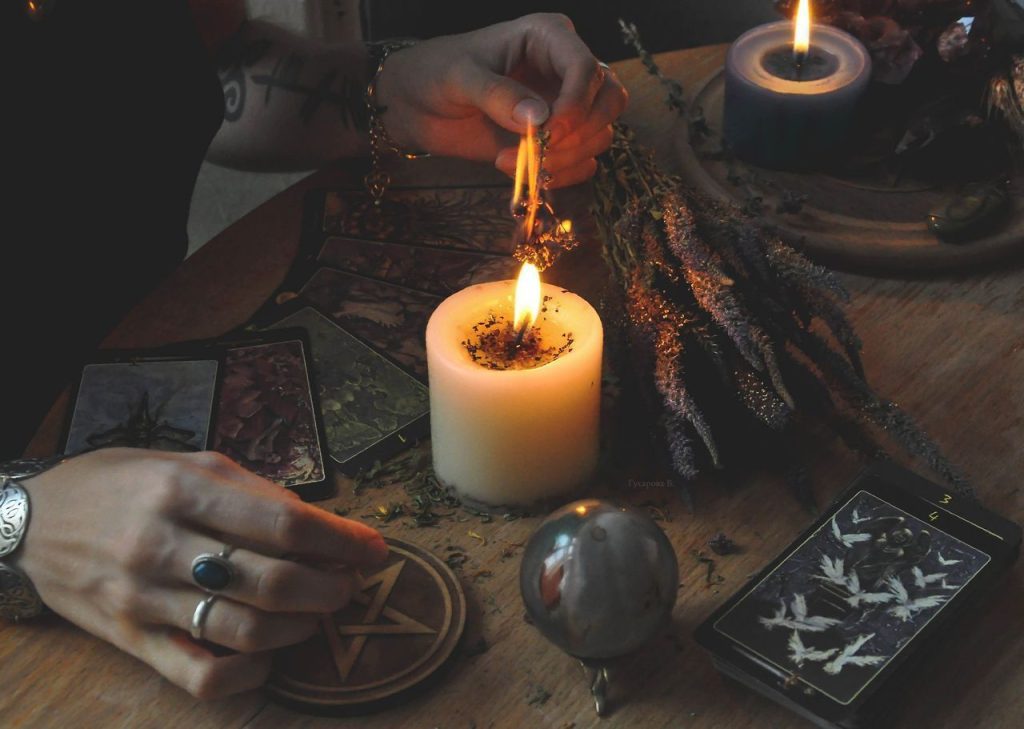
Benefits of Spiritual Rituals
Engaging in spiritual rituals extends far beyond mere tradition or routine; it holds the potential to deeply enrich our lives on multiple levels. These rituals offer a host of benefits that resonate with our core being, fostering growth, connection, and well-being. Here are some of the notable advantages of practicing spiritual rituals:
- Inner Peace and Tranquility: Spiritual rituals often involve moments of stillness, meditation, or mindfulness. Engaging in these practices allows individuals to calm their minds, reduce stress, and find solace in the midst of life’s challenges. The focus on the present moment and the connection with the divine create an atmosphere of inner peace.
- Sense of Purpose and Meaning: Rituals provide a framework for exploring life’s deeper questions and seeking meaning. By participating in rituals that are aligned with one’s belief system, individuals connect with their purpose, gaining insights into their roles within the broader context of existence.
- Strengthened Connection with the Divine: Through rituals, individuals experience a profound connection with the divine or the transcendent. This connection can offer a source of guidance, comfort, and support in navigating life’s uncertainties. It fosters a sense of being part of something greater than oneself.
- Emotional Healing and Release: Many rituals offer a safe space for emotional expression and healing. Participants often find catharsis through these practices, allowing them to release pent-up emotions, process grief, and find closure.
- Enhanced Mind-Body Connection: Spiritual rituals often involve engaging the body through movement, breathing exercises, or physical actions. This integration of the body enhances the mind-body connection, promoting overall well-being and a sense of harmony.
- Fostered Community and Belonging: Communal rituals bring people together, creating a sense of belonging and unity. Sharing these experiences with others who share similar beliefs fosters a supportive community, reducing feelings of isolation.
- Heightened Self-Awareness: Engaging in rituals often requires introspection and self-awareness. As individuals reflect on their intentions and experiences, they deepen their understanding of themselves, their desires, and their relationship with the spiritual realm.
- Increased Resilience and Coping Skills: The sense of connection, purpose, and inner peace derived from spiritual rituals equips individuals with improved coping mechanisms. They become better equipped to face life’s challenges with resilience and a more balanced perspective.
- Stress Reduction and Relaxation: Spiritual rituals often involve rhythmic activities, deep breathing, and meditation, all of which contribute to stress reduction and relaxation. Engaging in these practices can lead to reduced anxiety levels and a greater sense of calm.
- Ritual as a Catalyst for Change: Some rituals are designed to mark transitions or initiate change. Participating in these rituals can serve as a catalyst for personal transformation, providing individuals with a structured way to let go of the old and embrace the new.
- Increased Gratitude and Mindfulness: Many spiritual rituals emphasize gratitude and mindfulness. By focusing on blessings, expressing gratitude, and being present in the moment, participants cultivate a positive outlook and a greater appreciation for life.
In essence, spiritual rituals offer a multi-faceted toolkit for nurturing the soul and enriching life. They provide a space for reflection, connection, and growth, enabling individuals to tap into their inner resources and navigate the complexities of existence with greater clarity, resilience, and a profound sense of purpose.
Incorporating Spiritual Rituals into Daily Life
In the midst of our busy and often hectic lives, integrating spiritual rituals into our daily routines can provide a much-needed anchor, fostering a deeper sense of connection, purpose, and mindfulness. Here’s how you can incorporate these rituals into your everyday existence:
Morning Intention Setting: Begin your day with a simple ritual of setting positive intentions. As you wake up, take a few moments to reflect on your goals for the day, express gratitude, and invite positive energy into your life.
Mindful Breathing Breaks: Throughout the day, take mindful breaks to focus on your breath. Inhale and exhale slowly, centering yourself in the present moment. This practice can help reduce stress, increase awareness, and foster a sense of calm.
Gratitude Journaling: Set aside time each day to write down things you’re grateful for. This practice shifts your focus to the positive aspects of life and cultivates an attitude of gratitude.
Mealtime Blessings: Before each meal, take a moment to offer a blessing or express gratitude for the nourishment you’re about to receive. This can deepen your appreciation for the sustenance and create a mindful eating experience.
Nature Connection: Spend time outdoors and connect with nature. Take walks, sit under a tree, or simply observe the natural world around you. This can serve as a form of meditation and help you feel more attuned to the rhythms of the Earth.
Evening Reflection: Wind down your day with a brief reflection ritual. Review the events of the day, acknowledge your accomplishments, and set any intentions for the next day. This practice can help you cultivate self-awareness and closure.
Candle Lighting or Incense Burning: Light a candle or burn some incense as a simple way to create a sacred atmosphere in your space. This ritual can be done during moments of meditation, reflection, or just to infuse your surroundings with a sense of peace.
Daily Affirmations: Create positive affirmations that align with your goals and values. Repeat them to yourself throughout the day to reinforce a positive mindset and boost your self-confidence.
Acts of Kindness: Incorporate small acts of kindness into your daily routine. Whether it’s helping a colleague, offering a compliment, or practicing a random act of kindness, these actions align with spiritual values and foster a sense of interconnectedness.
Bedtime Reflection: Before sleep, engage in a reflective practice. Review the events of the day and take a few moments to release any worries or stress. Set an intention for a restful night’s sleep.
Digital Detox Ritual: Create a ritual for disconnecting from technology, even if only for a short while each day. Use this time to engage in a mindful activity, read, or simply be present in the moment.
Breathing Rituals: Incorporate intentional breathing exercises into your routine. Whether it’s deep belly breathing, alternate nostril breathing, or a specific pranayama technique, these practices can provide moments of calm and centering.
Remember, the key to incorporating spiritual rituals into daily life is consistency and intention. Choose rituals that resonate with you and align with your beliefs. Start with small steps, gradually building them into your routine. By infusing your daily life with moments of mindfulness, gratitude, and connection, you can create a profound shift in your overall well-being and outlook on life.
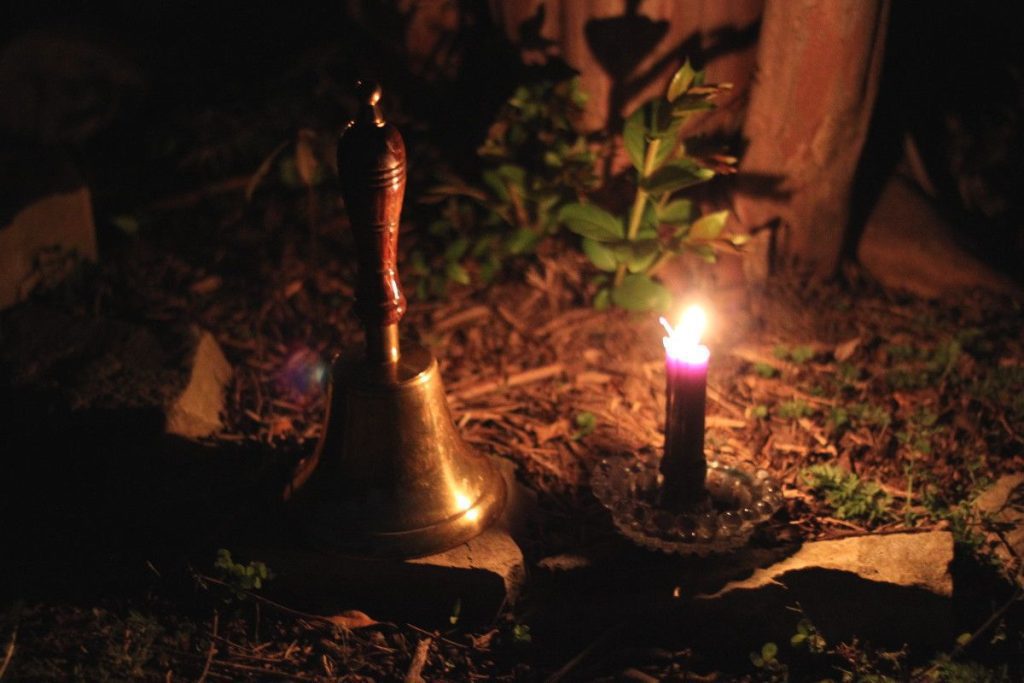
Conclusion
Spiritual rituals, diverse and deeply meaningful, transcend the boundaries of language, culture, and time. They serve as bridges between the tangible and the intangible, the individual and the cosmos, and the finite and the infinite. Whether through ancient chants echoing through temples or modern gatherings in virtual spaces, these rituals continue to be vessels that carry the human spirit on its journey of exploration and connection, reminding us of the profound mysteries that lie beyond the veil of the material world.




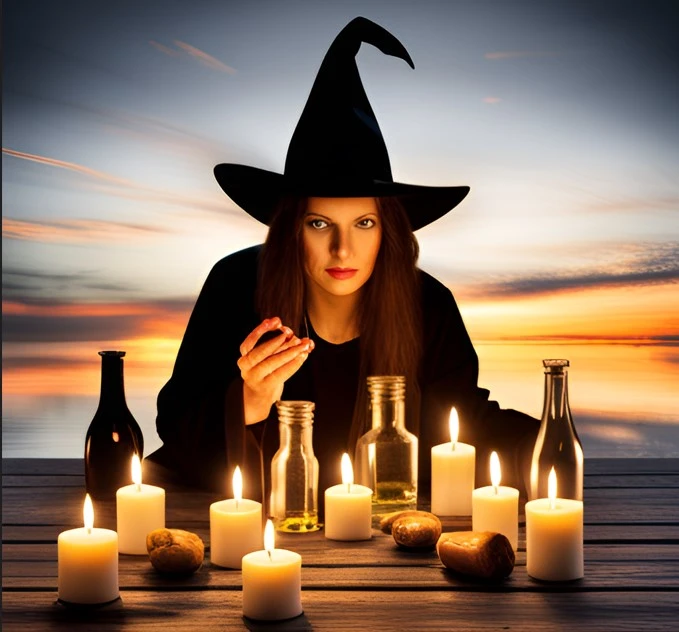
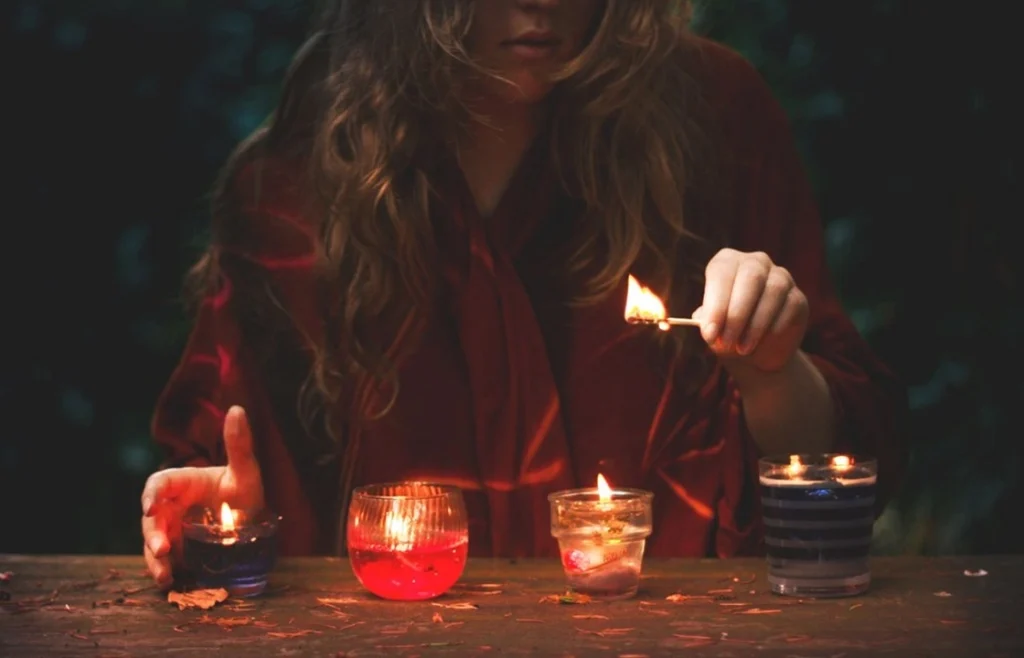
Usually I don’t read article on blogs, however I wish to say that this write-up very pressured me to take a look at and do it! Your writing style has been surprised me. Thank you, quite great post.
Hi, I do believe your web site may be having web browser
compatibility issues. When I take a look at your blog in Safari, it looks fine but when opening in IE, it’s got some overlapping issues.
I just wanted to give you a quick heads up! Besides that, fantastic blog!